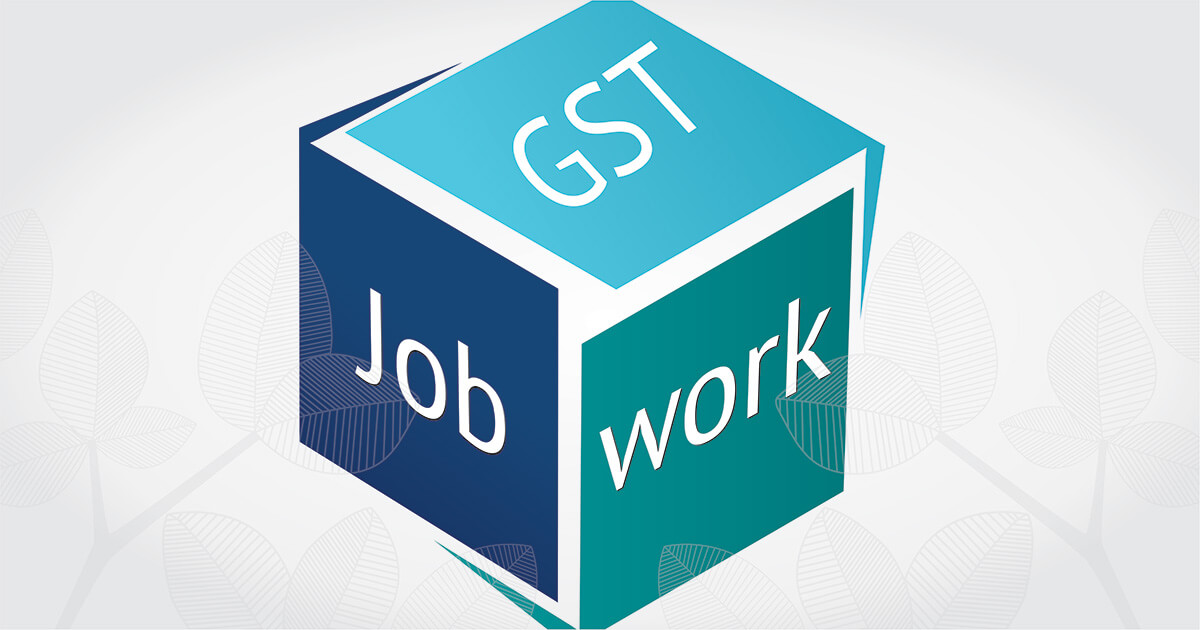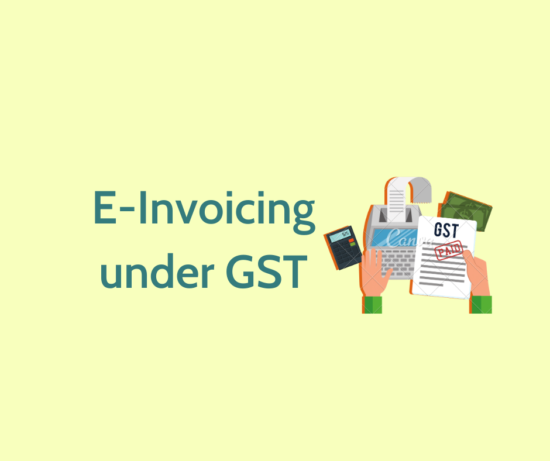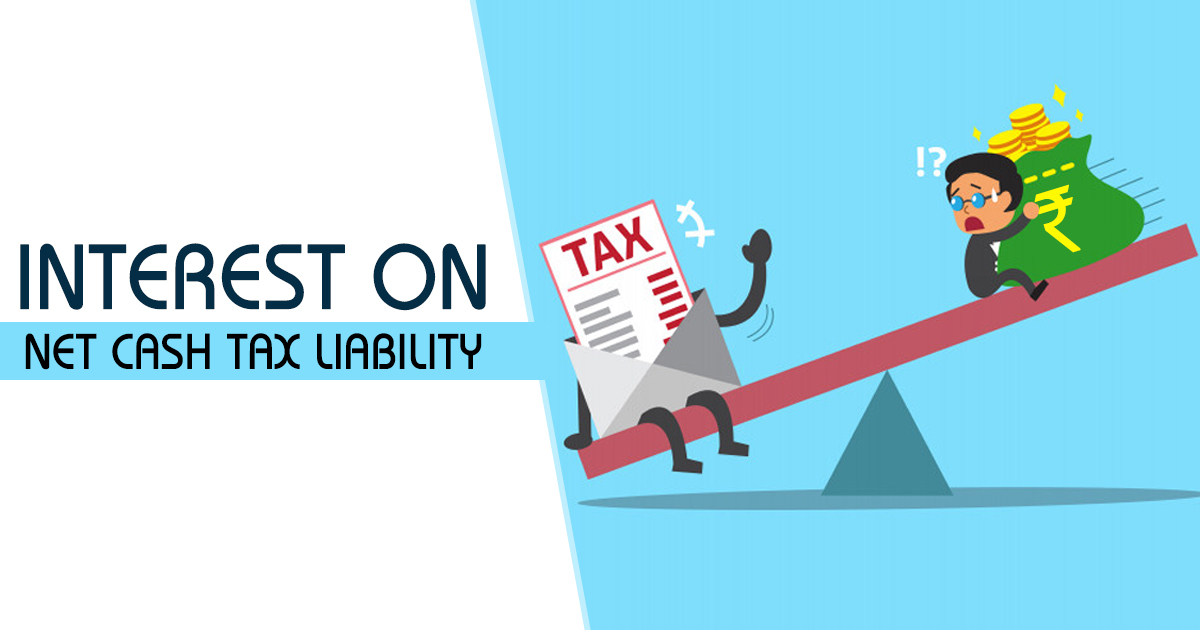Job work sector constitutes a significant industry in Indian economy. It includes outsourced activities that may or may not culminate into manufacture. The term Job-work itself explains the meaning. It is processing of goods supplied by the principal.
The concept of job work existed under erstwhile Central Excise regime also , wherein a principal manufacturer can send inputs or semi-finished goods to a job worker for further processing. Many facilities, procedural concessions have been given to the job workers as well as the principal supplier who sends goods for job work.
The special provisions in regard to job work are contained under Section 143 of the CGST Act, 2017 and Rule 45 of the CGST Rules, 2017.
The whole thrust of the above special provisions is to make the registered principal responsible for meeting compliances on behalf of the job worker on the goods processed by him (job worker), considering the fact that typically the job- workers are small persons who are unable to comply with the discrete provisions of the law.
As per Section 2(68) of the CGST Act, 2017 job work is ‘any treatment or process undertaken by a person on goods belonging to another registered person’. The one who does the said job would be termed as ‘job worker’. The ownership of the goods does not transfer to the job worker but it rests with the principal. The job worker is required to carry out the process specified by the principal, on the goods.
The job worker, in addition to the goods received from the principal, can use his own goods for providing the services of job work.
Section 19 of the CGST act, 2017 explains the definition of the Principal as ‘a person supplying goods to the job-worker
In simple words, Job work means processing or working on raw materials or semi-finished goods supplied by the principal to the job worker. The job work is to complete a part or whole of the process which results in the manufacture or finishing of an article or any other essential operation.
It is important to note here that the value of goods sent by the principal will not be included in the aggregate turnover of the job worker.
Special provisions related to job work are contained under Section 143 of the CGST Act, 2017. Under said Section , certain facilities with certain conditions are offered in relation to job work, which are briefed as under:
a) A registered person (Principal) can send inputs/ capital goods under intimation and subject to certain conditions without payment of tax to a job worker and from there to another job worker and after completion of job work bring back such goods without payment of tax. The principal is not required to reverse the ITC availed on inputs or capital goods dispatched to job worker.
b) Principal can send inputs or capital goods directly to the job worker without bringing them to his premises, still the principal can avail the credit of tax paid on such inputs or capital goods.
c) However, inputs and/or capital goods sent to a job worker are required to be returned to the principal within 1 year and 3 years, respectively, from the date of sending such goods to the job worker.
d) After processing of goods, the job worker may clear the goods to-
(i) Another job worker for further processing;
(ii) Dispatch the goods to any of the place of business of the principal without payment of tax;
(iii) Remove the goods on payment of tax within India or without payment of tax for export outside India on fulfilment of conditions.
The facility of supply of goods by principal to the third party directly from the premises of the job worker on payment of tax in India likewise with or without payment of tax for export may be availed by the principal on declaring premise of the job worker as his additional place of business in registration. In case the job worker is a registered person under GST, even declaring the premises of the job worker as additional place of business is not required.
The documents required to sending / receiving the goods are discussed later in the article.
Section 19 of the CGST Act, 2017 provides that the principal (a person supplying taxable goods to the job worker) shall be entitled to take the credit of input tax paid on inputs sent to the job- worker for the job work.
Further, the proviso also provides that the principal can take the credit even when the goods have been directly supplied to the job worker without bringing into the premise of the principal. The principal need not wait till the inputs are first brought to his place of business.
It may also be noted that the job worker is also eligible to avail ITC on inputs, etc. used by him in supplying the job work services if he is registered
As per section 19 of the CGST Act, 2017, inputs and capital goods after processing shall be returned back to principal within one year or three years respectively of their being sent out. Further, the provision of return of goods is not applicable in case of moulds and dies, jigs and fixtures or tools supplied by the principal to job worker.
The implication of non return of goods within above period is discussed later in the article.
As per the explanation provided in section 143 of the CGST Act, 2017, where certain process is carried out on the input before removal of the same to the job worker, such product after carrying out the process is referred to as the intermediate product.
It may be noted that such intermediate product can also be removed without the payment of tax. Therefore, both input and intermediate product can be cleared without payment of duty to job worker.
Pursuant to section 143 (5) of the CGST Act, 2017, waste generated at the premises of the job worker may be supplied directly by the registered job worker from his place of business on payment of tax or such waste may be cleared by the principal, in case the job worker is not registered.
In case where a registered job worker provides services to a registered Principal the rates specified in chapter heading 9988 will apply, wherein the general GST rate is 12%.
However for job work related to diamond the GST rate applicable is 1.50%. Further bus body building is exigible to GST @ 18%
However in cases where the job worker is registered and principal is unregistered, GST rate of 18% will be applicable.
/ premises?
Yes, the supply of goods by the principal from the place of business / premises of the job
worker will be regarded as supply by the principal and not by the job worker as specified in section 143(1)(a) of the CGST Act.
(i) Where goods are sent by principal to only one job worker:
The principal shall prepare in triplicate, the challan in terms of rules 45 and 55 of the CGST Rules, for sending the goods to a job worker. Two copies of the challan may be sent to the job worker along with the goods. The job worker should send one copy of the said challan along with the goods, while returning them to the principal. The FORM GST ITC-04 will serve as the intimation as envisaged under section 143 of the CGST Act, 2017.
(ii) Where goods are sent from one job worker to another job worker:
In such cases, the goods may move under the cover of a challan issued either by the principal or the job worker. In the alternative, the challan issued by the principal may be endorsed by the job worker sending the goods to another job worker, indicating therein the quantity and description of goods being sent. The same process may be repeated for subsequent movement of the goods to other job workers.
(iii) Where the goods are returned to the principal by the job worker:
The job worker should send one copy of the challan received by him from the principal while returning the goods to the principal after carrying out the job work.
(iv) Where the goods are sent directly by the supplier to the job worker:
In this case, the goods may move from the place of business of the supplier to the place of business/premises of the job worker with a copy of the invoice issued by the supplier in the name of the buyer (i.e. the principal) wherein the job worker’s name and address should also be mentioned as the consignee, in terms of rule 46(o) of the CGST Rules.
The buyer (i.e., the principal) shall issue the challan under rule 45 of the CGST Rules and send the same to the job worker directly in terms of para (i) above. In case of import of goods by the principal which are then supplied directly from the customs station of import, the goods may move from the customs station of import to the place of business/premises of the job worker with a copy of the Bill of Entry and the principal shall issue the challan under rule 45 of the CGST Rules and send the same to the job worker directly.
(v) Where goods are returned in piecemeal by the job worker:
In case the goods after carrying out the job work, are sent in piecemeal quantities by a job worker to another job worker or to the principal, the challan issued originally by the principal
cannot be endorsed and a fresh challan is required to be issued by the job worker.
(vi) Submission of intimation:
Rule 45(3) of the CGST Rules provides that the principal is required to furnish the details of
challans in respect of goods sent to a job worker or received from a job worker or sent from one job worker to another job worker during a quarter in FORM GST ITC-04 by the 25th day
of the month succeeding the quarter or within such period as may be extended by the Commissioner. It is the responsibility of the principal to include the details of all the challans relating to goods sent by him to one or more job worker or from one job worker to another and its return therefrom. The FORM GST ITC-04 will serve as the intimation as envisaged under section 143 of the CGST Act.
It may be noted here that the details of the following 4 types of transactions need to be furnished in Form ITC-04:
i) Inputs or Capital goods dispatched to job workers in the quarter
ii) Inputs or Capital goods received from job workers in the quarter
iii) Inputs or Capital goods sent from one job worker to another job worker in the quarter
iv) Inputs or Capital goods supplied from the premises of job workers in the quarter
If the inputs or capital goods are neither returned nor supplied from the job worker’s place of business / premises within the specified time period viz 1 year / 3 years , the principal would issue an invoice for the same and declare such supplies in his return for that particular month in which the time period of one year / three years has expired.
The date of supply shall be the date on which such inputs or capital goods were initially sent to the job worker and interest for the intervening period shall also be payable on the tax. If such goods are returned by the job worker after the stipulated time period, the same would be treated as a supply by the job worker to the principal and the job worker would be liable to pay GST if he is liable for registration in accordance with the provisions contained in the CGST Act read with the rules made thereunder.
Further, there is no requirement of either returning back or supplying the goods from the job worker’s place of business/premises as far as moulds and dies, jigs and fixtures, or tools are concerned.
The provisions of section 143 of the CGST Act are applicable to a registered person. Thus, it is only a registered person who can send the goods for job work under the said provisions.
It may also be noted that the registered person (principal) is not obligated to follow the said provisions. It is his choice whether or not to avail or not to avail of the benefit of these special provisions.
Follow us for free tax updates : facebook Twitter
***
Subscribe our portal and get FREE Tax e-books , quality articles and updates on your e-mail.
Resolve your GST queries from national level experts on GST free of cost.
Frah Saeed is a law graduate specializing in the core field of indirect taxes and is the Co-founder of taxwallah.com. She has authored many publications on GST and is into full-time consultancy on GST to big corporates. She as a part of taxwallah.com heads a team comprising of Chartered Accountants and Advocates and plays a key role in our mission to disseminate GST knowledge to all.




